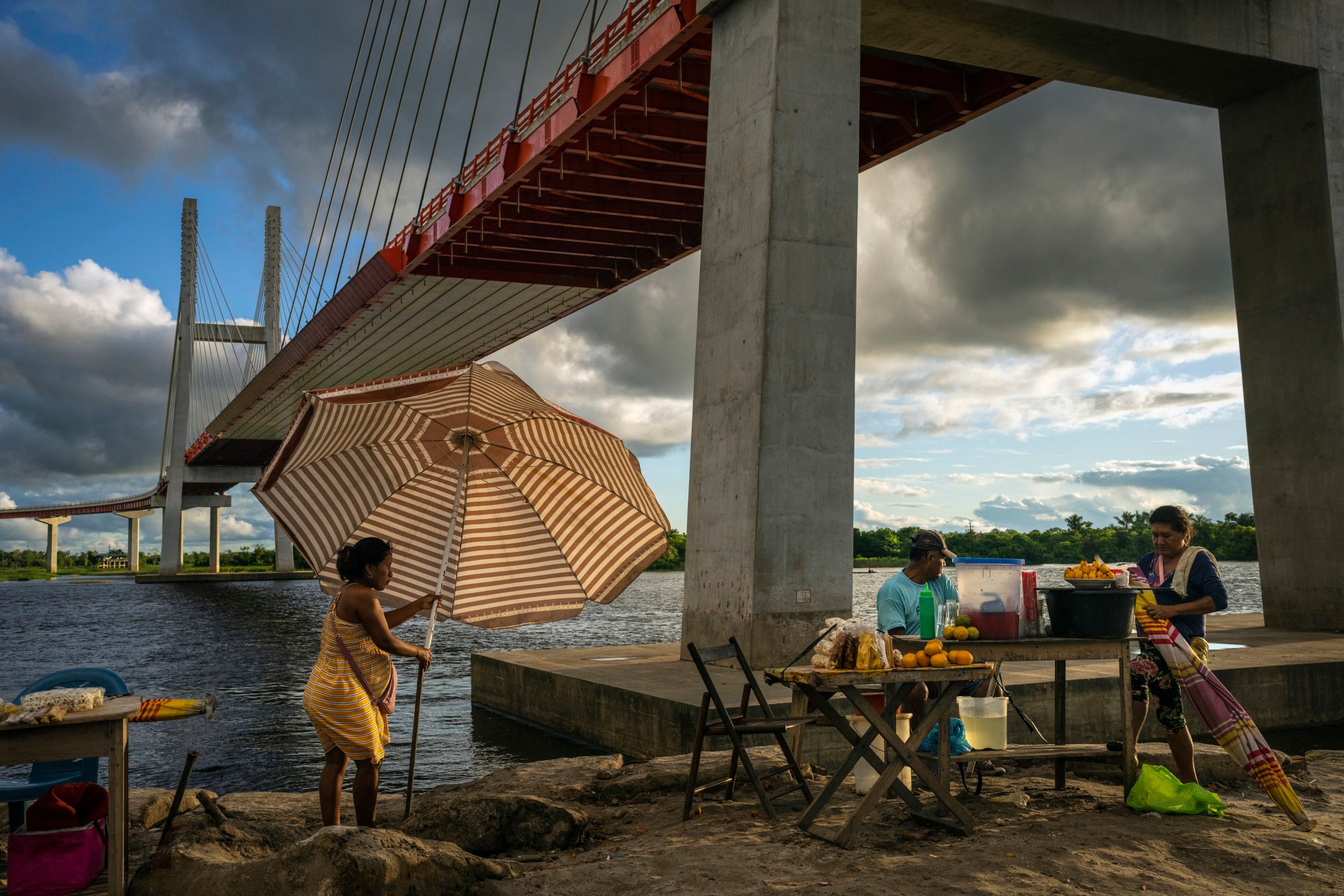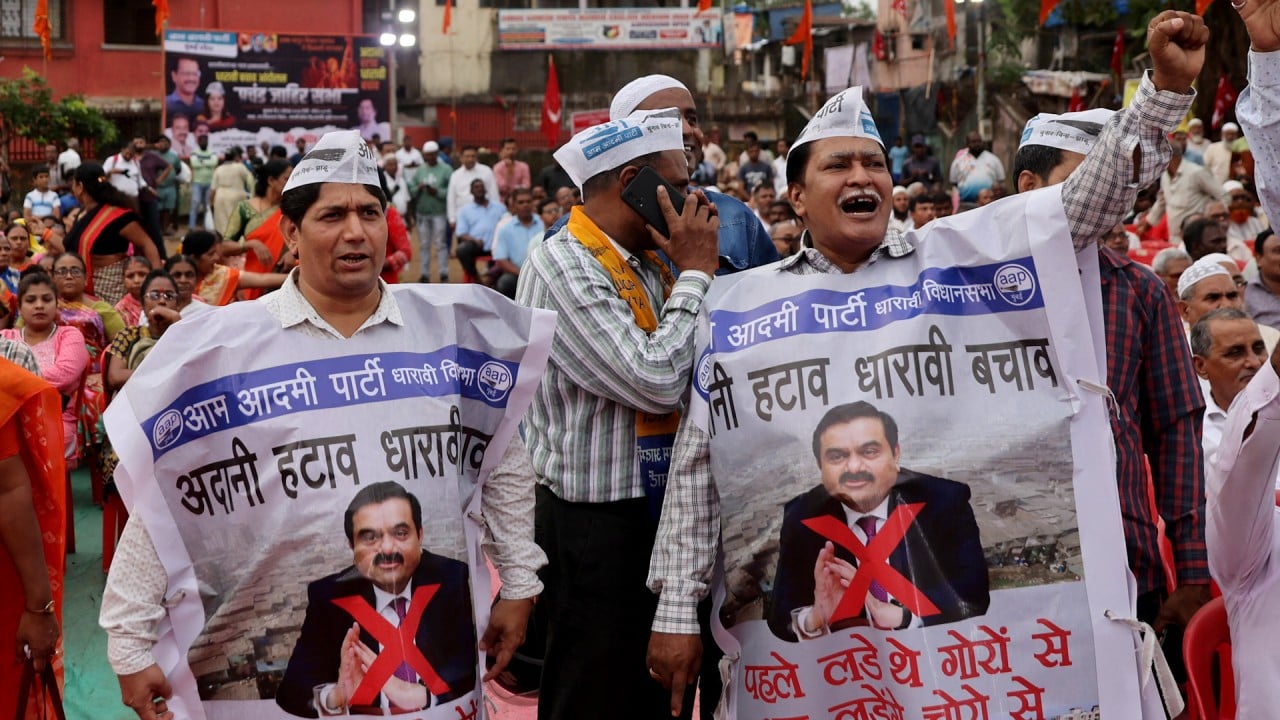It faces mounting opposition from Indigenous tribes who fear that the construction will lead to land grabbing, deforestation and drug trafficking, which have plagued similar projects across the world’s largest rainforest.
“The highway will kill us,” said Everest Ochoa, a member of the Maijuna indigenous group that lives in the Peruvian Amazon. “We have to stop this project for the sake of our children, to protect the land for them.”
Construction work is at a standstill as the government conducts a study of the area, but the transport ministry has already built the country’s largest bridge, which extends 2.3km over the Nanay River, a tributary of the Amazon River.

Indigenous leaders say the communities along the highway route have not been consulted.
“The government didn’t ask us anything about the highway passing through our territory and we want our rights to be respected”, community leader Artur Francis Cruz Ochoa said.
His community, Nuevo Arenal, is next to the bridge and has already suffered, he said. “Drugs have already started to infiltrate our community, young people are already consuming them. With the construction of the highway, it will get worse.”
In the village of Sucusari, also near the future path of the road, people echo the same fears. It is a community of thatched houses, where the 180 inhabitants live a traditional lifestyle, fishing, hunting and growing fruit for local markets, mostly aguaje, an Amazon delicacy.
“We will lose land, animals, fish, the water will be contaminated, and the forest. If the forest is lost, we won’t have water. We won’t have life without water,” Sebastian Rios Ochoa said. “With the highway, the abundance we have now will end.”
In a written message to AP, the transport ministry said the project’s objective is to connect people along the path and promote local economies, strengthen trade and help bring security to border areas.
The ministry said the construction of the bridge is considered an infrastructure project for public services and, as such, is not required to undergo prior consultation with the Indigenous tribes, according to Peru’s legislation.
The Iquitos-El Estrecho is the largest and most expensive highway construction in Peru´s Amazon, according to a recent report by Peruvian Society of Environmental Law, a non-profit. The report says there has already been land-grabbing and deforestation in Indigenous lands.
The highway will cross two protected areas, Maijuna Kichwa and Ampiyacu Apayacu, which cover about 8,000 sq km of old-growth forest, according to the report.
Zoila Ochoa Garay, 58, cries inconsolably when she speaks about her community of Nuevo Arenal, where the first stretch of the highway begins.
“Since this highway project began, people have been invading our community’s land,” she said. “There is no justice here.”


